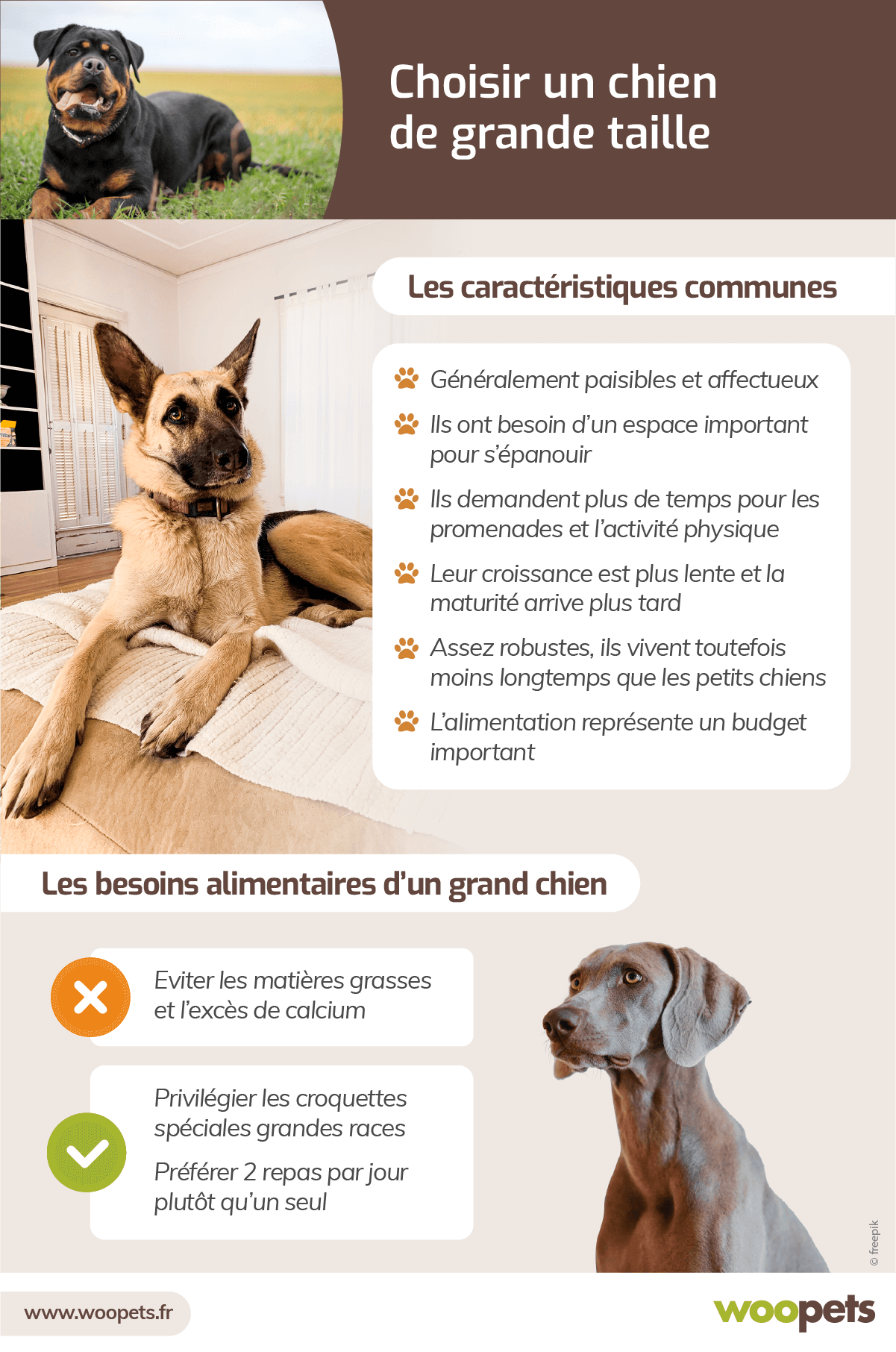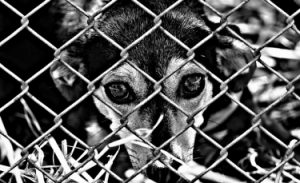Big dogs have as many advantages and disadvantages as small ones. It all depends on your expectations, your personality and your lifestyle. There are a number of essential data to consider before choosing one. Here’s what to consider before moving on to adopting a large dog.
Among large dogs, we find large breeds (between 30 and 50 kg, such as the German Shepherd, Rottweiler, Bernese Mountain Dog, Golden Retriever or even Labrador) and giant breeds (over 50 kg, such as the Mastiff and the Cane Corso).
Before any adoption of a dog considered to be large, you must make sure that all the conditions are met for its well-being , its development and its daily development. Whether in terms of the area of your home or in terms of your lifestyle.
Contrary to popular belief, large dogs are not more aggressive or rowdy than small ones. Simply, their appearance is more imposing and the consequences of their anger or clumsiness are much more remarkable.
Choose the breed according to your domicile
If you want to adopt or acquire a large dog , you need to be sure that you can take full responsibility for it . Choosing a large dog should not be done on the spur of the moment: the little puppy you have in front of you is destined to become a big fellow weighing 30 kg and more in adulthood, with all that that implies on a daily basis. .
The category of large dogs includes several breeds, choose this one according to your lifestyle : if you have children, the Newfoundland or the Leonberger will suit a little more than the Tibetan Mastiff , with a more independent character. Of course, a large dog needs more space, but he can get along with apartment living as long as he can walk around on a daily basis .
Slower growth
Dogs belonging to large breeds have a slower growth , with a late maturity , but also a shorter life expectancy (8 to 10 years in the Great Dane). Large dogs do not reach their adult weight until they are 2 years old. In terms of health, they are quite robust, but predisposed to ailments related to their large size: torsion-dilation of the stomach, hip dysplasia, cardiomyopathy …
They also have a shorter lifespan . While a small dog can live up to 20 years at best, a large dog only has a life expectancy of a dozen years at best. They become seniors more quickly.
The costs to be expected
When buying, large dogs are not necessarily more expensive than small ones: count 600 to 1500 euros , or even more, for a dog with a pedigree. The cost is higher on a daily basis, however, since they eat larger amounts of food and require larger doses of medication. In addition, you must plan everything in XXL: leash, bed, kennel, bowl, etc.
Generally peaceful behavior
Big dogs are no more rowdy than small ones. They know how to be discreet and do not bark more than their congeners with smaller dimensions. They are also no less affectionate. Large dogs are, of course, a deterrent, but a good education makes them perfectly balanced life companions. It is a question of educating them with firmness, but without violence or balance of power.
Also, get your dog used to the presence of children and other animals. Your dog’s future behavior depends on the quality of education and socialization he receives.
Short or long haired?
There are of course large dogs with short hairs and others with long hairs. For once, it’s a matter of taste and time to devote to brushing your companion. A Poitevin will inevitably take less time to brush than an Afghan Hound or a Komondor …
Read also: Choosing a small dog
In summary
Choosing a large dog should be done after answering several questions. You need to be sure that it will flourish in your setting and way of life. Your future dog will have to match your expectations: socialization, education, sensitivity, listening. Some dogs will be sensitive to your absences, others will not. Large dogs do not tend to bark more than small ones, but their howl can be louder. It’s up to you to weigh the pros and cons.
 </p
</p









